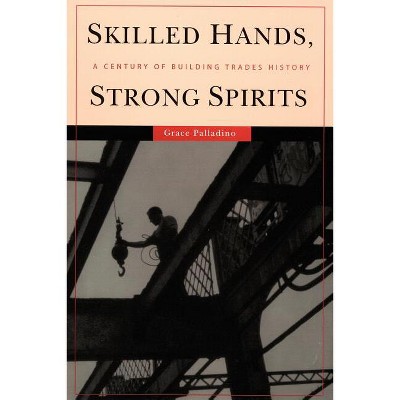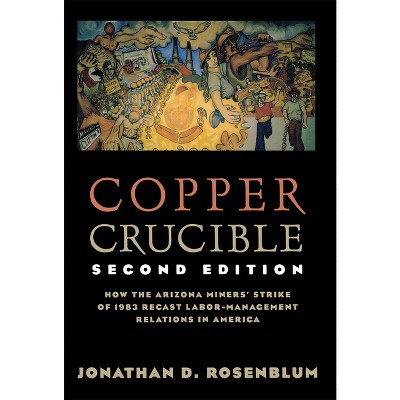Sponsored

Ghostworkers and Greens - by Adam Tompkins (Paperback)
In Stock
Sponsored
About this item
Highlights
- Throughout the twentieth century, despite compelling evidence that some pesticides posed a threat to human and environmental health, growers and the USDA continued to favor agricultural chemicals over cultural and biological forms of pest control.
- About the Author: Adam Tompkins is Assistant Professor of History at Lakeland College Japan in Tokyo.
- 248 Pages
- Political Science, Labor & Industrial Relations
Description
About the Book
In Ghostworkers and Greens, Adam Tompkins reveals a history of unexpected cooperation between farmworker groups and environmental organizations. Tompkins shows that the separate movements shared a common concern about the effects of pesticides on human health.
Book Synopsis
Throughout the twentieth century, despite compelling evidence that some pesticides posed a threat to human and environmental health, growers and the USDA continued to favor agricultural chemicals over cultural and biological forms of pest control. In Ghostworkers and Greens, Adam Tompkins reveals a history of unexpected cooperation between farmworker groups and environmental organizations. Tompkins shows that the separate movements shared a common concern about the effects of pesticides on human health. This enabled bridge-builders within the disparate organizations to foster cooperative relationships around issues of mutual concern to share information, resources, and support.Nongovernmental organizations, particularly environmental organizations and farmworker groups, played a key role in pesticide reform. For nearly fifty years, these groups served as educators, communicating to the public scientific and experiential information about the adverse effects of pesticides on human health and the environment, and built support for the amendment of pesticide policies and the alteration of pesticide use practices. Their efforts led to the passage of more stringent regulations to better protect farmworkers, the public, and the environment. Environmental organizations and farmworker groups also acted as watchdogs, monitoring the activity of regulatory agencies and bringing suit when necessary to ensure that they fulfilled their responsibilities to the public. These groups served as not only lobbyists but also essential components of successful democratic governance, ensuring public participation and more effective policy implementation.
Review Quotes
Adam Tompkins provides a useful addition to the literature on alliances between environmentalists and workers in this study documenting the shifting coalitions between greens and farmworkers to fight pesticide poisoning in the Southwest and Florida. Noting that neither movement could defeat the agricultural and chemical lobbies on their own, he argues "that bridge-builders transcended differences between organizations and ably negotiated the cultural terrain of diverse movements to foster working relationships" (p. 10). In doing so, Ghostworkers and Greens is an important story in this growing body of scholarship.
--Erik Loomis, University of Rhode Island "Oxford University Press Journals: Environmental History"Tompkins builds a compelling argument that respective organization leaders sought and achieved significant, if still limited, cooperation in campaigns to regulate pesticide use in the U.S.... Tompkins' close attention to the interplay between policy dynamics and organizing strategies has timely insights not only for scholars of labor and environmental issues, but also for organizers who seek to build strategic coalitions across groups.
-- "Polar: Political & Legal Anthropology Review"About the Author
Adam Tompkins is Assistant Professor of History at Lakeland College Japan in Tokyo.
Shipping details
Return details
Trending Non-Fiction











